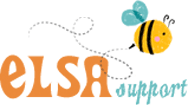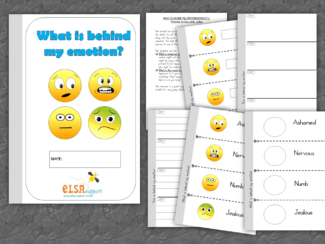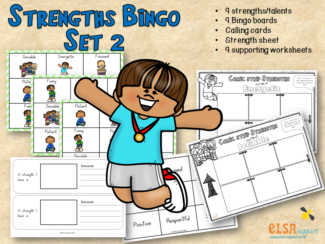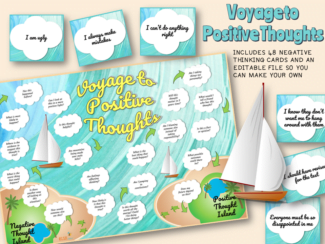What is ELSA Intervention?
What is ELSA Intervention?
An ELSA in a school is an Emotional Literacy Support Assistant. There is a recognised training course aimed specifically at Teaching Assistants or other specialist school roles. ELSAs are specialists with a wealth of experience of working with children and young people. ELSAs are trained and regularly supervised by Educational Psychologists. The course tends to be 6 full days and covers many areas from emotional literacy to active listening.
Supervision
ELSAs must be supervised regularly by the Educational Psychologists who trained them. This supervision is key to good practice and allows the ELSA to bring up any problems with a group of other ELSAs along with the Educational Psychologist.
Scope of practice
It is important that ELSAs work within the their scope of practice and only cover things they are trained to cover. Any concerns out of their scope of practice should be discussed with their Educational Psychologist and potentially referred on to outside agencies. ELSAs SUPPORT NOT FIX.
ELSA Relationship
ELSAs are warm, kind and caring people who want to make children and young people feel happy in school. and to reach their potential socially, emotionally and academically. They understand the barriers to learning that some children and young people might have and can help them with this.
They can support the children and young person’s emotional development and help them cope with life’s challenges. ELSAs will also help children and young people to find solutions to problems they might have.
An ELSA is not there to fix problems but to help them find their own solutions and offer that important support to a child or young person.
Relationships are key in helping children and young people to feel safe and nurtured. ELSA is about creating a reflective space for the child or young person.
Please see our leaflet on ELSA
What areas does an ELSA help with?
- Loss and bereavement
- Emotional Literacy
- Self-esteem
- Social Skills
- Friendship issues
- Relationships
- Managing strong feelings
- Anxiety and worries
- Bullying
- Conflict
- Emotional Regulation
- Growth Mindset
- Social and therapeutic stories
- Problem solving
How are children or young people referred for ELSA?
- Class teacher referral
- Sendco referral
- Parent referral
- Child referral
- Outside agency referral
How long should an ELSA Intervention last?
ELSA intervention should be a short term focus intervention with clear aims. Usually half a term to a full term in length.
ELSA Short term focused intervention
The vast majority of ELSA sessions are proactive. This means that there are targets for the ELSA to achieve with the child or young person. This makes the intervention measurable so the school knows the child or young person has made progress and the intervention has been successful. The targets are known as SMART – specific, measurable, achievable, realistic and time limited. For examples of targets please see our blogpost
It is helpful to measure data prior and post intervention to ensure the child or young person has progressed or to see what the next steps might be. We at Elsa-Support developed our own measure that is very popular (with many comments being made from SLT and even OFSTED) – Social and Emotional assessments
Once the target has been set an ELSA can plan a series of sessions for that child to help them achieve their target. This might be a one to one session or a group session. The usual intervention is 6 sessions (half a term) but it could be a little longer if necessary. It is important the child or young person doesn’t become too attached and reliant on the ELSA because the aim for most children or young people is to cope independently with any challenges that they face.
Our planning templates can be found here
We also have a huge list of typical learning objectives
A typical ELSA lesson
There would be a welcome for the child or young person along with an emotional check in. How do they feel today?
A warm up or icebreaker game or activity would be played. This part is important because it helps the child to feel relaxed and it’s fun!
The main activity would follow where the ELSA would be teaching something to help the pupil with their target. The ELSA would also review what was learnt last time to see if the child or young person has remembered and if they used the skill taught.
There would be a relaxation exercise to help the child or young person be ready for class and a quick review on what the child or young person has learnt that session. At this point the ELSA may ask the child or young person to do something for next time. eg. practise star breathing when feeling angry.
Here is a visual timetable of a lesson to download ELSA Session This is helpful for the child or young person, ELSA and also a great way to show other members of staff what goes on in a typical session.
ELSA Reactive Support
Sometimes things happen in life such as a death, divorce, illness, hospital stay, and so on. An ELSA can help the child or young person reactively which means they can support them immediately when things like this happen. Through a strong relationship with the ELSA, the child or young person can feel safe and cared for and know that someone is there for them. Reactive support is very much about active listening which is taught on the course. It is child or young person led and there aren’t any targets.
Where do sessions take place?
This all depends on the school and the space available. Ideally there is a room especially for ELSA intervention.
Here some ELSAs have shared displays they have done in their rooms. We also have a blog post on setting up a room – Setting up an ELSA room
Parent Communication
Whilst permission isn’t needed to run a school based intervention with children, it is important to work with parents and inform them. Children or young people can make so much more progress when the parent and ELSA work together. Perhaps the parent can continue the learning outside of the session eg. practising coping strategies when the child has big emotions.
We do have a few leaflets to send home to parents that might be helpful.
ELSA Resources
We have developed many resources over the past 10 years and are leading in this area with many ELSAs using our resources. We have resources for children from 4 years old to 18 years old. (EYFS, KS1, KS2, and Secondary). Our resources are not only suitable for ELSAs but also for other practitioners. There are a huge list of people who use our resources and here are a few of them:
- GPs
- Teachers
- Learning mentors
- Social Workers
- Camhs
- NHS Nurses
- Counsellors
- EMHPs
- Education Psychologists
- Teaching Assistants
- HLTAs
- Family Support workers
- SENDCO
- Head Teachers
We have a huge library of over 500 free resources available for ANYONE to download. There is no catch, no sign up, just download. We hope they help you to support children – Free resource section Each Friday we add a new one to the free resource section. Known as #elsafreefriday. Of course we often add more than one but this one is guaranteed every single week.
We have lots of low cost resources available for you to download. Full programmes of support linked to areas covered by ELSAs and tools for you to use with your training knowledge. – ELSA Support resources
Most of our resources are digital downloads. Recently we designed and created some Notepads and Stickers and you can find them in ‘Debbie’s Hive’
New ELSAs or anyone else that work with children
Please join us in our ELSA Support and Wellbeing Mentors group. This is a caring community of other practitioners (over 15,000) who support each other. No question is too small and there is always someone who can support and help you. (me included).
Follow us
Find out more about ELSA
To find out more about the ELSA course, contact the Educational Psychologists in your local authority and ask them if they are running one, if not ask them if it is possible for the future. Additionally check out neighbouring local authorities because they will sometimes take people out of their area to make up numbers. To find out more about ELSA visit the ELSA Network site
Other Resources you will love!
What is behind my emotion? – Item 205
These booklets can be used in a number of ways by combining the sheets to suit the child. Print which sheets you require along with…
£2.50
Strengths Bingo Set 2 – Item 282
The Strengths Bingo Set 2 game is great for boosting self-esteem. Every child has strengths and talents but sometimes they find it hard to see…
£2.00
Voyage to Positive Thoughts Game- Item 579
The object of the Voyage to positive thoughts game is to be able to reframe negative thoughts into more positive thoughts by using the thought…
£4.00






Perfect for my students at school!